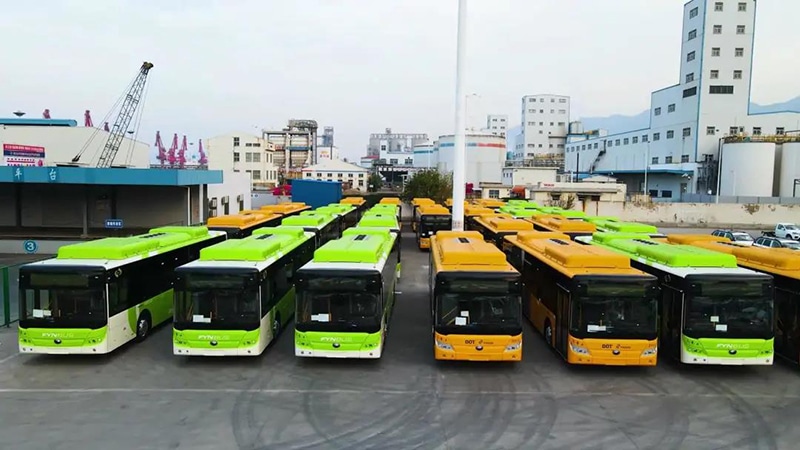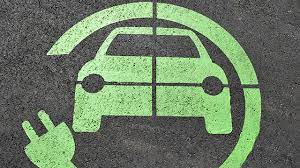Electric buses have become fully operational in Canberra. The Yutong E12 is manufactured by a Chinese company of the same name that has been around for years, and marks as a significant milestone for the ACT.
The electric buses had a successful trial in 2020; Transport Canberra and some local operators tested a localised variant of the E12 in 2021 and received a significant amount of good feedback.

However, the trial met several challenges as well. Some bus drivers pointed out some flaws, such as the power supply to the depot will only allow one bus to charge at a time. Another flaw brought to light was the lengthy charge times that may impact efficiency.
Nevertheless, the good outweighs the bad, and now there will be 12 E12s on the road that will service Canberra residents with a regular route from Woden and then a tour around Civic, which will be rolled out in the coming weeks. 90 more battery electric buses are also being purchased after the procurement process.
“Obviously, with any active procurement, there’s a lot of restrictions around that, but that second tranche and first purchase of battery electric buses is very exciting,” said Sarah Taylor-Dayfus, the executive branch manager of planning and delivery of Transport Canberra.
A five-year lease was given to the first 12 electric buses for more flexibility at the end of the term for buying the bus or opting for another lease of a more updated vehicle.
Yutong started out as a bus repair factory before venturing into the bus manufacturing business. Yutong Australia started importing buses in 2012, but the E12 is their first electric bus.
The Yutong E12
The electric bus can seat 44 individuals and accommodate 21 standing passengers. It has a 215 kW continuous rated output powered by 422kWh or 350 kWh Lithium-ion battery. The Yutong E12 also provides wheelchair access.

The range of the bus varies according to load and condition. One local trial mentioned that the bus finished a 377km run with no trouble. According to Ian McGlinn, Transport Canberra’s executive branch manager, the estimated driving range is 400 km for the electric buses.
He also said, “Charge time will vary depending on how much range is left and how many are plugged in. We’ll also be charging them at every opportunity we can to keep their charge up.”
When it comes to the charge time, some can take over an hour to six hours, depending on the battery pack and the charging solution.
Currently, Yutong is the main supplier of the chargers, but Transport Canberra is in talks with EvoEnergy about the Woden depot power supply that is set to be finished in late 2024.
The buses and their charging equipment will operate from the Tuggeranong depot.
Chris Steel, the ACT Minister said, “This is just the start of our program that will see Canberra eventually move to a completely zero emissions public transport network that is powered by 100 per cent renewable electricity by 2040 or earlier.”
As the transport sector in Canberra booms with more EVs hitting the roads, households and businesses are more motivated to take advantage of the boom of renewable energy. As electrification in the country progresses, you can do your part by switching to solar energy, not only via transportation but by making your home fully self-sufficient with rooftop solar panels and other renewable energy sources.
Get started now with a test drive for an electric vehicle, or get up to 3 free quotes for solar. You can use our free electricity bill comparison tool to compare local offers from Australia’s major energy retailers and help you make the switch in a few quick steps. All you need to get started is a recent energy bill.
EV adoption in ACT

The ACT has already reached 100 per cent renewable electricity, and their transportation is now the single largest source of emissions.
With this in mind, EV adoption in the ACT is growing rapidly. A significant driving force behind this is the government’s support of Zero Emissions Vehicles (ZEvs) and BEVs with incentives like stamp duty exemption and two years’ free ACT vehicle registration.
Homeowners can also access the ACT Sustainable Household Scheme zero-interest loan that allows for up to $15,000 when buying a ZEV.
Public EV chargers are also underway in Canberra, with the government’s commitment to deliver around 180 public chargers by 2025.
If you have yet to test-drive an EV, why not book a test-drive today?
Get rooftop solar panels in Melbourne. Energy Matters has a nationwide network of trusted local solar installers in Melbourne that you can access today that can provide you with up to 3 Free Solar Quotes. Complete our quick quiz and switch to solar in Melbourne today.













































